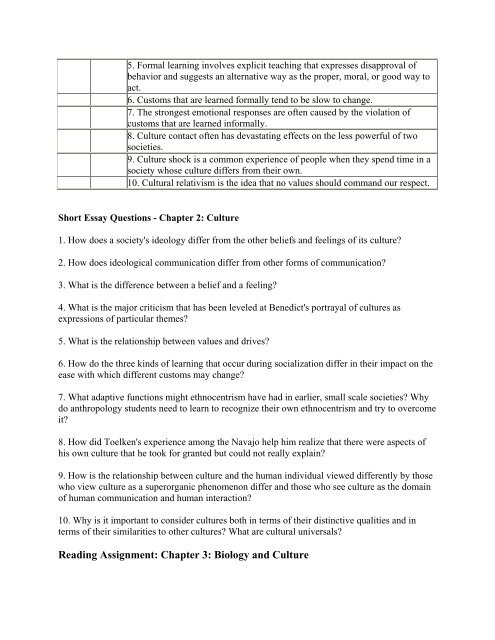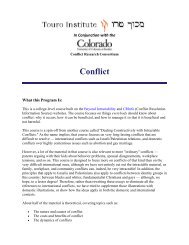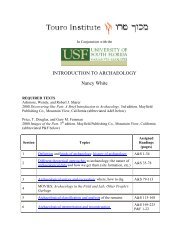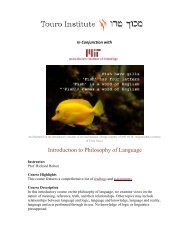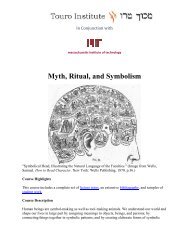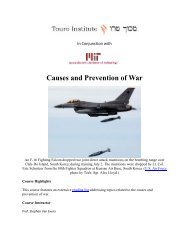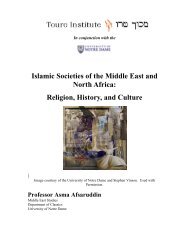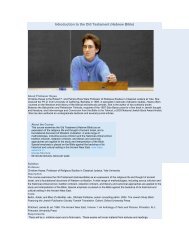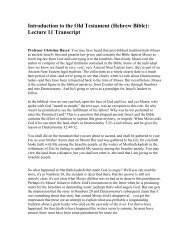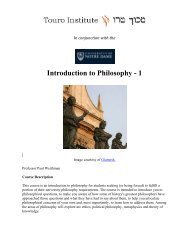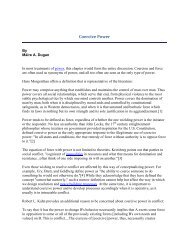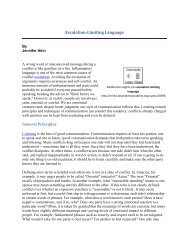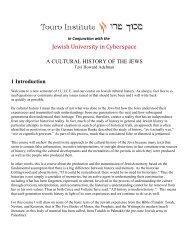In Conjunction with Cultural Anthropology - Touro Institute
In Conjunction with Cultural Anthropology - Touro Institute
In Conjunction with Cultural Anthropology - Touro Institute
Create successful ePaper yourself
Turn your PDF publications into a flip-book with our unique Google optimized e-Paper software.
5. Formal learning involves explicit teaching that expresses disapproval of<br />
behavior and suggests an alternative way as the proper, moral, or good way to<br />
act.<br />
6. Customs that are learned formally tend to be slow to change.<br />
7. The strongest emotional responses are often caused by the violation of<br />
customs that are learned informally.<br />
8. Culture contact often has devastating effects on the less powerful of two<br />
societies.<br />
9. Culture shock is a common experience of people when they spend time in a<br />
society whose culture differs from their own.<br />
10. <strong>Cultural</strong> relativism is the idea that no values should command our respect.<br />
Short Essay Questions - Chapter 2: Culture<br />
1. How does a society's ideology differ from the other beliefs and feelings of its culture?<br />
2. How does ideological communication differ from other forms of communication?<br />
3. What is the difference between a belief and a feeling?<br />
4. What is the major criticism that has been leveled at Benedict's portrayal of cultures as<br />
expressions of particular themes?<br />
5. What is the relationship between values and drives?<br />
6. How do the three kinds of learning that occur during socialization differ in their impact on the<br />
ease <strong>with</strong> which different customs may change?<br />
7. What adaptive functions might ethnocentrism have had in earlier, small scale societies? Why<br />
do anthropology students need to learn to recognize their own ethnocentrism and try to overcome<br />
it?<br />
8. How did Toelken's experience among the Navajo help him realize that there were aspects of<br />
his own culture that he took for granted but could not really explain?<br />
9. How is the relationship between culture and the human individual viewed differently by those<br />
who view culture as a superorganic phenomenon differ and those who see culture as the domain<br />
of human communication and human interaction?<br />
10. Why is it important to consider cultures both in terms of their distinctive qualities and in<br />
terms of their similarities to other cultures? What are cultural universals?<br />
Reading Assignment: Chapter 3: Biology and Culture


